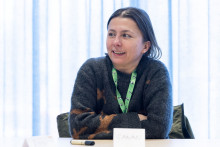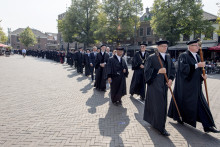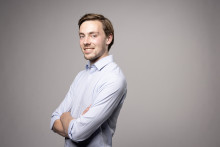The University of Twente has many students and staff from the affected region. Therefore, I want to reach out to my UT community to let everyone know that your students, colleagues, teachers, or partners might not be OK. The region lost a lot, and the aftermath is not certain yet, but there is an urgent need for help to give people food, shelter, health and emotional support, and resources to rebuild their lives again.
I am sure you have already heard about the two major earthquakes and a series of aftershocks that hit South-East Turkey and Northern Syria this month, affecting 13 million people in the region. The death toll so far exceeded 33,000 and is expected to exceed 100,000. Survivors have suffered an immeasurable loss of loved ones and their shelters.
I was born and raised in the western part of Turkey. Earthquakes are a part of our lives there. In 1970, my mom experienced a significant earthquake and lived in a tent for about three months. In 1999, as a teenager, I observed the horrific Izmit earthquake, where tens of thousands died, and that event left us a deep scar and fear of the anticipated Istanbul earthquake. In the past twenty years, Turkey had more than ten earthquakes of magnitude 6.0 or higher. It is our reality. There is no escape from earthquakes if you are from Turkey or have your loved ones living in Turkey. Nevertheless, every earthquake reminds us that the next one can hit us. Moreover, even though we are far away, one morning, we can wake up to the news that we have lost our hometown and loved ones.
I am writing this piece because of my experience at UT after the earthquake. It was nice that many colleagues asked if I had anyone in the affected region. However, those questions implied that I should be OK if I had no close contact in the affected area. In reality, I was far from being OK. I know my colleagues and students from Turkey were feeling the same way (I did not lose anyone, but I feel scared, anxious, and horrible). Nevertheless, I heard some of them had to take their performance reviews right after the tragic event while still dealing with their emotions. I do not think we should be expected to “be normal” after a tragic event like this.
Although most of us here have no physical exposure to the earthquake, we have developed vicarious trauma, a process of change resulting from empathetic engagement with our country and nation. There is collective grief when an entire nation experiences extreme change and loss. In times like these, community support is vital.
The first thing I kindly ask you to consider is supporting the affected communities by sending donations. Given the insurmountable scale of the disaster, the communities need your support in the short and the long term. Every contribution, regardless of the amount, can make a massive difference in the lives of those affected. Your generosity will help provide shelter, food, and medical supplies to those in need.
The next thing I am asking is to show empathy and support toward the people from the affected areas. Your kindness might go a long way to help someone. Collective support from the UT community can make people feel more included, seen, heard, and respected. Please remember that no physical exposure, such as not losing family members, does not mean no grief; we should also focus on collective grief.
There are so many things that we can do for our community. We can show genuine interest and ask one question at a time. Focusing on one question and letting the affected person dictate the tempo of the conversation is important. It is essential to remember not to reflect on own past experiences because we should not be competing with pain and trauma. Having a good listener can help verbalize some pain for the affected people which could accelerate healing. So why not be a good one?
Being a good listener does not mean being a quick fixer. It is important not to provide easy tools such as “get over it.” Instead, we can ask “How can I help you? ”. Getting into meaningful conversations could develop deeper connections and a sense of belonging, and community for anyone in need. Please avoid from accusing anyone of faking it or exaggerating their feelings/situation. And please do not assume that people from certain regions of the world are immune to trauma or tragedy.
Supporting staff and students from Turkey and Syria after the earthquake can help foster a sense of community and togetherness within UT. It can help create a sense of solidarity and connectedness, as people come together to support and help one another.
This solidarity and connectedness can help promote a culture of diversity and inclusivity within UT. It demonstrates our commitment to supporting all members of our community, regardless of their background or nationality.
Together, we can show kindness and support towards each other and make UT a better community for all. It is the only way to help each other heal and grow.







